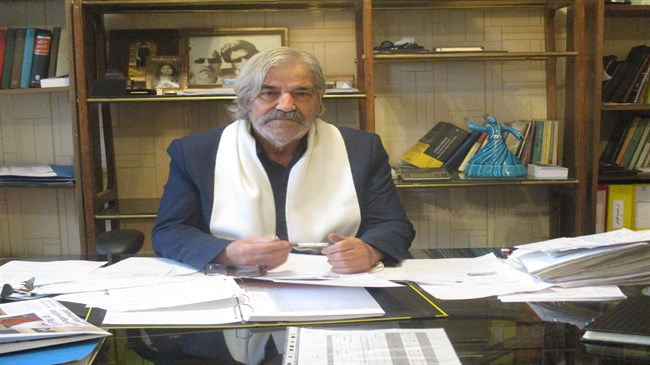Official: Turkey will continue cooperation with Iran despite US pressures

Despite Washington’s pressures, Ankara will not stop cooperation with Tehran, said Seyyed Jalal Ebrahimi, the secretary general of Iran-Turkey Joint Chamber of Commerce.
In May 2018, President Donald Trump withdrew the US from the Joint Comprehensive Plan of Action (JCPOA), signed between Iran and P5+1, and reimposed Washington’s unilateral sanctions on Tehran. The states refraining from abiding by the sanctions, mainly targeting Iran’s oil sector, face US penalties.
He added Iran and Turkey have an obligation to conduct trade and maintain economic relations with each other.
Ebrahimi said since withdrawal from the JCPOA, the US has spared no efforts to force Turkey into desisting from purchasing Iran’s oil and gas by hook or by crook.
“To this end, the US has placed Turkey under different forms of pressure.”
This comes as, he noted, Ankara is still continuing its cooperation with Tehran as the country is dependent on Iran’s oil and gas resources, on one hand, and is interested in collaboration with its eastern neighbor, on the other, he said.
He assured that Turkey is not concerned about developments surrounding Iran and the sanctions on the country, adding Iran is the cheapest and closest source for Turkey to meet its energy demands.
“Turkey has always obtained a major portion of its oil and gas requirements through imports from Iran.”
In previous decades, he recalled, a main part of the energy needs of Turkish plants and industrial units was addressed through burning coal, Ebrahimi said.
“This is while at present, Turkey is dependent on Iran’s oil and gas reserves for supplying fuel to a large number of its factories and industries.”
He warned that in the absence of Iran’s energy resources, many Turkish iron smelting and textile manufacturing factories will have to either suspend their activities or shut down.
The eastern part of Turkey is completely reliant on importing oil and gas from Iran, Ebrahimi said.
He added Turkey’s people have gotten used to the welfare provided by having access to natural gas and cannot put up with its shortage.
“On the other hand, Turks cannot easily meet their energy needs through other sources except Iran and that is why they are continuing their imports from the country.”
Stressing that it is necessary for the two countries to ensure cooperation with each other, he said, at present, when Iran and Turkey are under external pressures, they are required to understand each other more than ever and meet each other’s needs.
Commenting on banking problems caused by the imposition of the sanctions on Iran, Ebrahimi noted, “Despite all these difficulties, the two countries are conducting their banking transactions. Our traders and businessmen know how to find solutions for continuing their trade exchanges.”
Ebrahimi added given the present circumstances, the two countries should work out solutions to promote bilateral barter trade.
On the historical background of the two states’ trade and economic relations, he said Iran has traditionally been a gateway for Turkey and Europe’s access to the East and Turkey has been the passage of East and Iran to European markets.
He noted that Iran and Turkey share many territorial and cultural commonalities and thus they establish trade relations easily and quickly.
Although Turkey is a member of the North Atlantic Treaty Organization, it is currently under US economic pressures as Washington is not interested in Ankara and Moscow establishing close relations.
“Currently, trade transactions between Iran and Turkey stand at between $9.5 billion and $11.5 billion. Given Iran’s oil and gas exports to Turkey, the trade balance is in favor of the former. However, in the absence of oil and gas exports, the balance shifts in Turkey’s favor.”
He said Iran imports industrial spare parts, machinery and chemicals from Turkey and exports minerals, agricultural products, and, recently, copper and metal pellets to the country.

